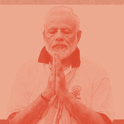The incredibly damaging Dominic Cummings scandal, combined with a more general lack of grip on Covid-19—the failing of the contact tracing app being just the latest governmental blunder—has helped plunge his approval ratings into the red. Photo: PA Images
The Tories have found the apex of a certain kind of Tory-ness in Boris Johnson. He combines a laissez-faire attitude to—well everything—with a born-to-rule demeanour. He was popular with the public for his spirit of public optimism and general demeanour.
However, the cracks are starting to show and that same public that once adored him are increasingly irritated with him. The incredibly damaging Dominic Cummings scandal, combined with a more general lack of grip on Covid-19—the failing of the contact tracing app being just the latest governmental blunder—has helped plunge his approval ratings into the red.
A divided membership
As such Tory politicians are increasingly nervous about Johnson's ability to turn his own rating around. Whisper it, but they are starting to ask themselves “who next?” But the problem is, they neither have a candidate with Boris's positives but not his negatives, nor do they have a machine ready to promote an alternative style. There aren’t many politicians like Johnson and for good and ill, he’ll be a hard act to follow.Even harder will be getting the party to select as next leader someone without at least a little of what has made Johnson an increasingly divisive figure. Their system of choosing the leadership was supposed to protect it from the membership going full-Corbynite and fulfilling the worst instincts of their id. Having their parliamentary party reduce the choices to just two options was a way to weed out candidates who might terrify voters and remind them of just why the Tories are known as the nasty party.
But they now have too many headbangers inside the tent of the 1922 committee to guarantee that there won't be one on the ballot. And when there is, whoever they’re up against will likely suffer the same fate as that of Jeremy Hunt, whose attempt to be the moderate in the room went down in flames against Johnson’s full-throated Tory Brexiteer. The party is too invested in its most right wing and populist instincts to give them up without a fight.
So while Rishi Sunak may be being talked up in the tea rooms and has become the darling of certain more centrists commentators, his path to any future leadership is a great deal more complicated than is envisaged. Like Rory Stewart before him, he’s the kind of Tory that appeals to liberal metropolitans. That doesn’t describe many members of the Conservative Party.
The Cummings factor
In part, this is a problem caused by Johnson’s overly powerful advisor Dominic Cummings.Cummings’s approach to the internal management of the Tory party has been Maoist in its ruthlessness. He has changed the party completely and possibly permanently. Before the election, Johnson got rid of 21 of his own MPs in order to select candidates who would be both more compliant and more inclined to go along with a radical approach. It was not just the loss of those MPs that made a difference, but the message that their defenestration sent about what happens when you disagree with the PM.
Johnson's problems may be only superficial for the moment. But they do expose a Tory party who spent too long waiting for him to lead and too little time thinking beyond his first election victory.
We now have a cabinet that is not made up of the strongest talents from across the Tory party, but of those most likely to be compliant. That’s not great for a country suffering enormous challenges but it’s probably equally not great for the long-term health of the Conservative Party. If talent doesn’t rise, it doesn’t lead. When Dominic Raab has one of the highest profiles in the Party it’s quite unarguable that there’s a longer term problem.
Short-term thinking
Meanwhile, Labour seems to be getting its act together. It has a mountain to climb though, and may not manage it in one go. Given Labour’s own struggles, the Tories may just decide that they don’t need to worry too much about their own problems. That short-termist attitude is—after all—central to their current approach to everything. They may also decide to Get Brexit Done and then dump Boris Johnson. They have traditionally had a well-developed instinct for political survival.But the Tories’ Boris Johnson problem isn’t actually to do with the current flailing of the prime minister and his team. It isn’t his falling ratings, either. It is the reckoning they haven’t had with what has changed in their party and the possibly permanent effect these shifts will have on it.
In his short term “victory at any cost” approach, Johnson may ironically be the man responsible for making the Tories unelectable in the long term. Because without someone of his political magnetism, all they’re left with is populism and mediocrity and a Party machinery that has little ability or willingness to change either.












